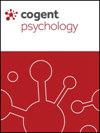“Am i disabled?”: disability and identity management among middle-class persons with disability in Ghana
IF 1.6
Q2 PSYCHOLOGY, MULTIDISCIPLINARY
引用次数: 0
Abstract
Abstract Persons with disability experience actual manifestations of stigma (enacted stigma) and imagined or anticipated responses of people to their impairments (felt stigma). These experiences influence their conceptions of their impairments and their behaviour as well. This study examined how 16 middle—class persons with disability in Ghana frame their impairments and how they manage their identities in response to stigma. Data for the study was obtained from in-depth interviews of participants who had been selected purposively. The author used the interpretative phenomenological analysis framework to analyse data. Findings from the study were organised into two themes. These are how the participants frame their impairments and how the participants managed their identities as they confronted disability stigma. The participants engaged in self—denial of disability because they did not regard their impairments as “disabling”. They also employed two related strategies to manage their identities. First, they made use of behavioural strategies to alter the nature and sources of stigma, and second, they devised cognitive strategies to construct positive identities to challenge disability stereotypes. It is important that persons with disability are given the opportunity to obtain adequate formal education in order for them to increase their levels of awareness. This will enable them to improve their cultural and social capitals and also facilitate their entry into mainstream activities in society. furthermore, inclusive spaces have to be expanded so that persons with disability will not have to rearrange themselves and their thoughts for social integration.“我残疾了吗?”:加纳中产阶级残疾人的残疾和身份管理
本文章由计算机程序翻译,如有差异,请以英文原文为准。
求助全文
约1分钟内获得全文
求助全文
来源期刊

Cogent Psychology
PSYCHOLOGY, MULTIDISCIPLINARY-
CiteScore
2.90
自引率
0.00%
发文量
75
审稿时长
12 weeks
期刊介绍:
One of the largest multidisciplinary open access journals serving the psychology community, Cogent Psychology provides a home for scientifically sound peer-reviewed research. Part of Taylor & Francis / Routledge, the journal provides authors with fast peer review and publication and, through open access publishing, endeavours to help authors share their knowledge with the world. Cogent Psychology particularly encourages interdisciplinary studies and also accepts replication studies and negative results. Cogent Psychology covers a broad range of topics and welcomes submissions in all areas of psychology, ranging from social psychology to neuroscience, and everything in between. Led by Editor-in-Chief Professor Peter Walla of Webster Private University, Austria, and supported by an expert editorial team from institutions across the globe, Cogent Psychology provides our authors with comprehensive and quality peer review. Rather than accepting manuscripts based on their level of importance or impact, editors assess manuscripts objectively, accepting valid, scientific research with sound rigorous methodology. Article-level metrics let the research speak for itself.
 求助内容:
求助内容: 应助结果提醒方式:
应助结果提醒方式:


